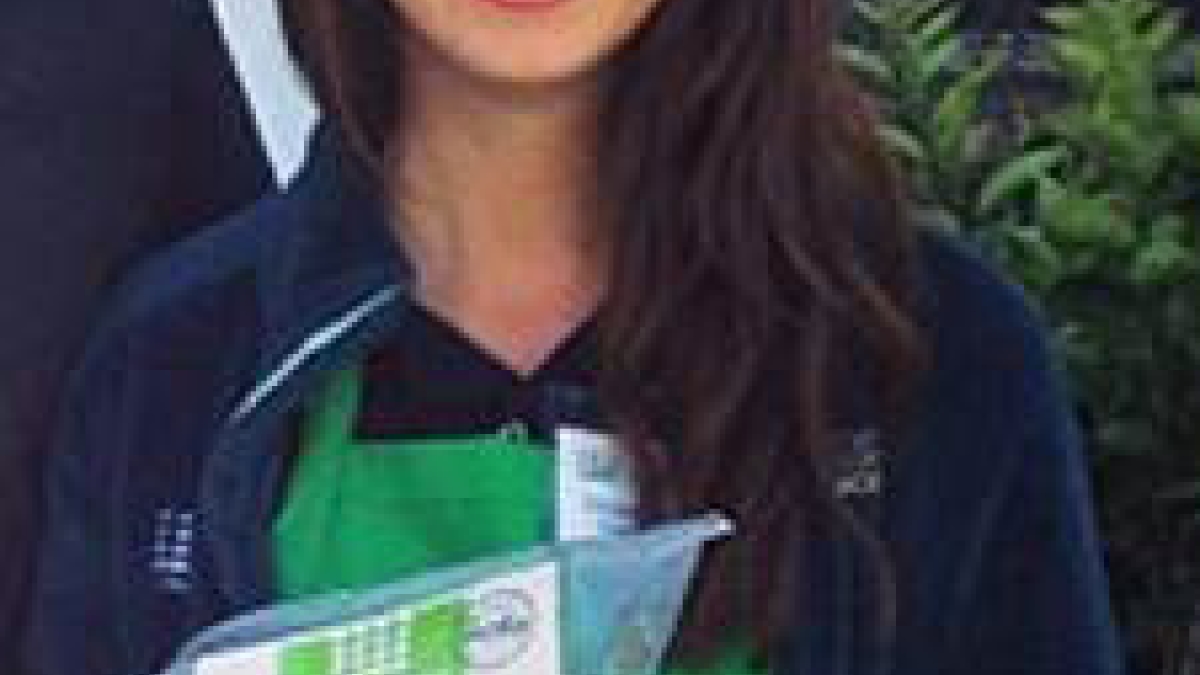Sustainability alum turns food waste into a career

When Natalie Fleming was in high school, she first learned about sustainability in one of her courses. Back then, many cities were implementing plastic bag bans, and that caught Fleming’s attention. How could plastic bags be so detrimental to the environment? And how does a city organize around a ban? Fleming decided to explore this and more at Arizona State University’s School of Sustainability.
After studying food systems and waste management, Fleming graduated from the School of Sustainability in 2012 with a bachelor of arts. Her interests in cleaning up the planet led to her current position as district sales manager for a small Utah startup called EcoScraps.
“EcoScraps collects produce waste from grocery stores, farms, food banks, basically anywhere that has food that has gone bad before selling,” Fleming says. “We pick it up and make organic gardening products like garden soil and plant food.”
Fleming joined the EcoScraps team a month after graduating. Living in the San Francisco Bay area, Fleming is able to work remotely for the company. As the district sales manager, she hires, trains, and oversees employees who are responsible for representing EcoScraps at its distributors like The Home Depot and Lowe’s. Her training of EcoScraps and distributor employees provides the right education to increase the company’s sales. Right now, Fleming manages a team of 15 part- and full-time representatives in addition to finding new distributors.
However, she says her favorite part of the job is working for a small company that is still making its way into the sustainable business market.
“EcoScraps is still an underdog, but we have the opportunity and time to improve the company,” she says. “Our products are along the Miracle-Gros of the world. It’s really exciting to be able to attract customers to such a new, innovative product and encourage more sustainable consumption.”
Fleming attributes her job skills to the group projects and leadership roles she engaged in while at the School of Sustainability.
“During the group projects, we partnered with real-world organizations, and these partnerships taught me how to work in a team and how to be a leader,” Fleming says. “The skills I learned like problem solving really stuck with me and set me apart from the average person.”
Certainly, Fleming’s involvement as a campus representative for SustainU, the sustainability director of ASU’s 2011 Undie Run, and the director of engagement for ASU’s Campus Student Sustainability Initiatives gave her the leadership experience she needed to manage EcoScraps employees.
“I have found that it is important to have a knowledge base of sustainability, as well as being able to handle yourself and manage your time effectively,” she says.
While EcoScraps is Fleming’s first job after college, she says that she doesn’t know exactly where her path will take her next.
“Even when you get your first job out of college, you may not know exactly what you want to do,” she says. “I know what I care about and I know that sustainability will always be built into my career. I am always going to follow that.”
Fleming says she learned about EcoScraps from an acquaintance. Even though the company wasn’t hiring, Fleming took a chance and sent the EcoScraps creators an email telling them how enthusiastic she is about sustainability and why she would be a great fit at the company.
And graduating students should do the same.
“Tell everyone you meet how excited you are to graduate and how much you love sustainability,” Fleming says. “Let them know you’re on a job hunt. Share your interest with people and you never know where that connection is going to come from. It will help you get your foot in the door.”